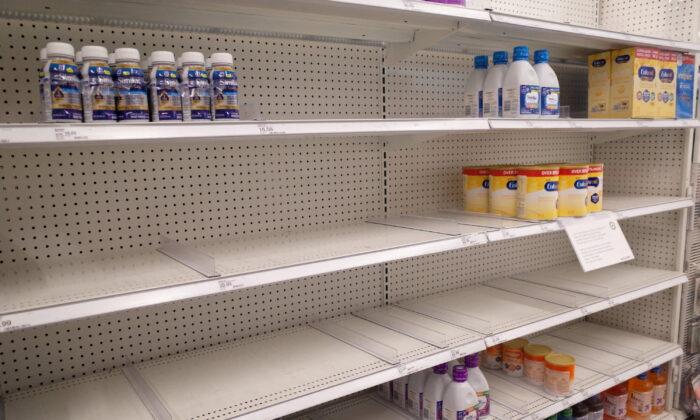Former Food and Drug Administration (FDA) officials told a House Oversight subcommittee that factors that led to a shortage of baby formula have been identified but remain unchanged.
Witnesses at a March 28 hearing of the House Subcommittee on Health Care and Financial Services said the agency would need more funding, enforcement authority, and a better organizational structure to avoid repeating the problem.





